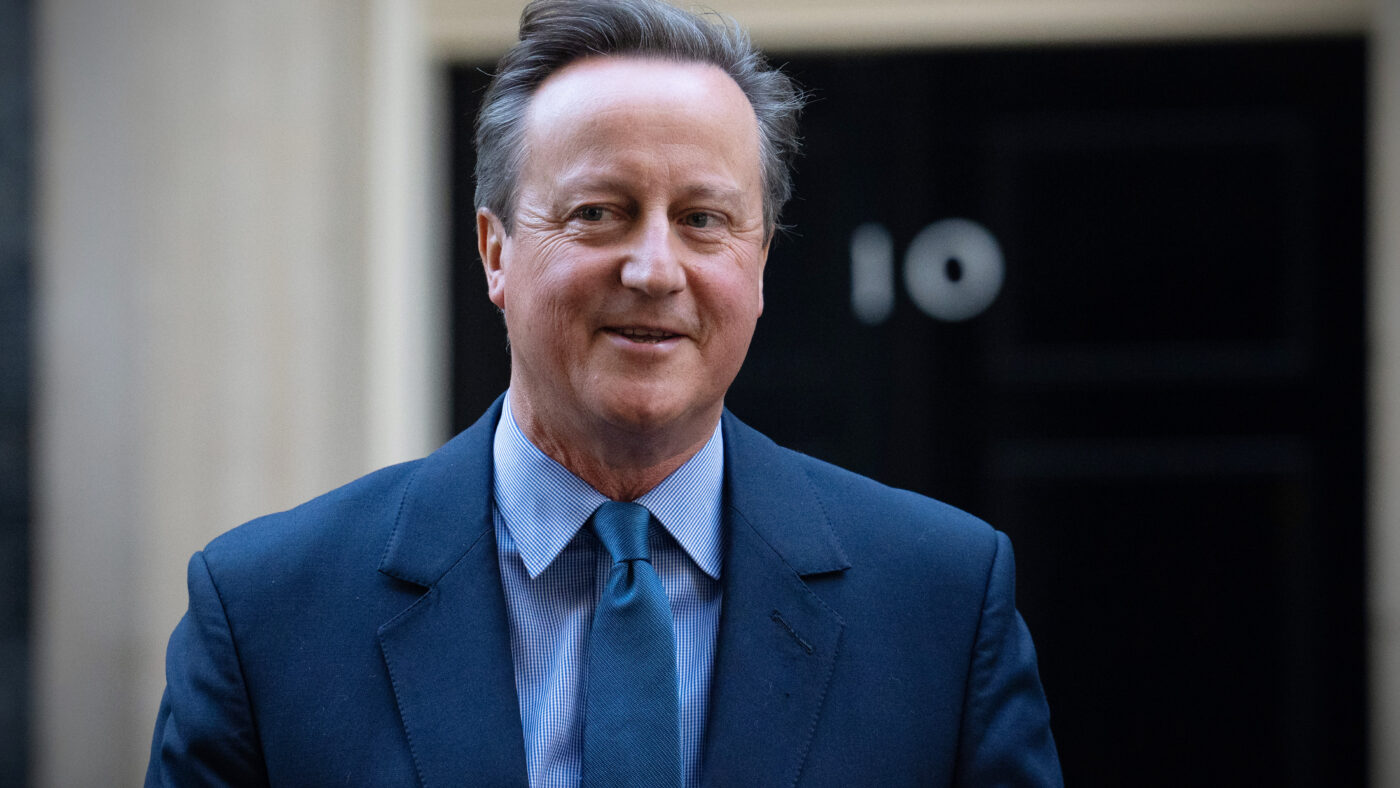David Cameron’s appointment as Foreign Secretary revives the lost tradition of former Prime Ministers staying in politics and serving in government. Like Arthur Bafour and Alec Douglas-Home before him, Cameron is a patrician, widely thought to be second-rate, and left office in troubled circumstances. But like them, he is underrated.
Cameron is Britain’s last successful Prime Minister. His government reformed education, which is delivering exceptional results for disadvantaged children. His focus on fiscal discipline was justified during the pandemic when Britain needed to spend large sums. And when Boris won a large majority, he did it on the back of Cameron’s success, who gained nearly a hundred seats, more than any of Margaret Thatcher’s elections.
So his return is welcome. No politician has an unimpeachable record. He will face the most scrutiny on China but his record is less one-sided than it seems. Cameron advocates reforming institutions like the World Bank, to lend an additional trillion dollars to countries across Africa, Asia and the Middle East. In this way, the West can act as a counterbalance to China. ‘There is little point complaining about countries signing up for the Belt and Road’, he said, ‘if we can’t say to them ‘here’s the alternative’.
Most people, however, will oppose his appointment because of Brexit. Whatever successes his government had – the first successful coalition for generations, the introduction of gay marriage, raising international aid spending to 0.7% of GNI, winning the Scottish independence referendum – Brexit will forever cast Cameron into the shadows for some. But something had to be done. However much we value the free movement of people, it isn’t tenable to quadruple net migration levels without manifesto commitments and not to expect some sort of long-term political reaction. A referendum was necessary, sooner or later. Cameron is a scapegoat for the result. But was the Scottish referendum an unconscionable risk?
Allowing Cameron back into government is a step towards a better political culture. One where the bitterness of past decisions can eventually be put aside in favour of governing now. This used to be more common. Arthur Balfour might be the least successful Prime Minister ever. Not only did the Conservatives lose their worst defeat ever, Balfour lost his own seat. He got re-elected, remained as Tory leader, and was so intransigent about allowing Liberal policy to pass the House of Lords that the upper chamber lost its veto. Truly, a dismal leader.
But not such a bad politician.
In 1917, as Foreign Secretary, Balfour overcame his terrible sea-sickness to travel to America and bring the States onside to end the First World War. As the Ottoman empire collapsed, and many argued for an expansion of imperial interests in the Middle East, Balfour made the first major act of support for the establishment of a Jewish state in Palestine. During moments of constitutional crisis, he was called on for advice. He was the only former Prime Minister involved in the replacement of Asquith with Lloyd George in 1916, essential when Britain was performing poorly in the Great War. And he served in the government between 1925-1929, well into his seventies, chairing a committee whose report gave rise to the Statute of Westminster, the law that began the process of allowing British colonies to rule themselves.
All politicians are imperfect – Cameron far less so than Balfour – and the culture that allowed Balfour to serve meant Westminster retained the expertise and experience of former leaders. The now much forgotten Alec Douglas-Home was also Foreign Secretary after he was Prime Minister: he played an important role in reassuring the Tory right about entry to the EEC. He also expelled over a hundred Soviet spies from Britain. Many other Prime Ministers were unable to participate in politics due to their health, or disgrace, but Lloyd George remained in Parliament after losing office, and, despite his ongoing quarrel with Asquith, was a defender of free trade. Clement Attlee was active in the Lords, and campaigned in elections in the 1960s. Callaghan stayed in the Lords and extended Great Ormond Street’s copyright, but he was the last one to do meaningful service.
This tradition was broken first by Harold MacMillan, and then by Edward Heath. MacMillan went back to his family publishing business, occasionally intervening later on to disapprove of Margaret Thatcher. And Heath stayed in the Commons out of pure spite for Thatcher. As Douglas Hurd wrote, Heath’s resentment for Thatcher prevented him playing any sort of useful role for the rest of his career. Thatcher was the same, conducting partisan politics from the Lords against what she saw as a betrayal of her principles by John Major. Major in his turn, bruised from years of infighting, left politics to do charitable work and watch cricket. Blair went off to earn money.
Theresa May stayed, and has made interventions in several debates. But it is this appointment of David Cameron that shows us a new sort of political culture is possible, one where our former Prime Ministers can continue to be useful, however imperfect their record. The best way to clear the bitterness from politics is to have the old generation work with the new.
Click here to subscribe to our daily briefing – the best pieces from CapX and across the web.
CapX depends on the generosity of its readers. If you value what we do, please consider making a donation.


